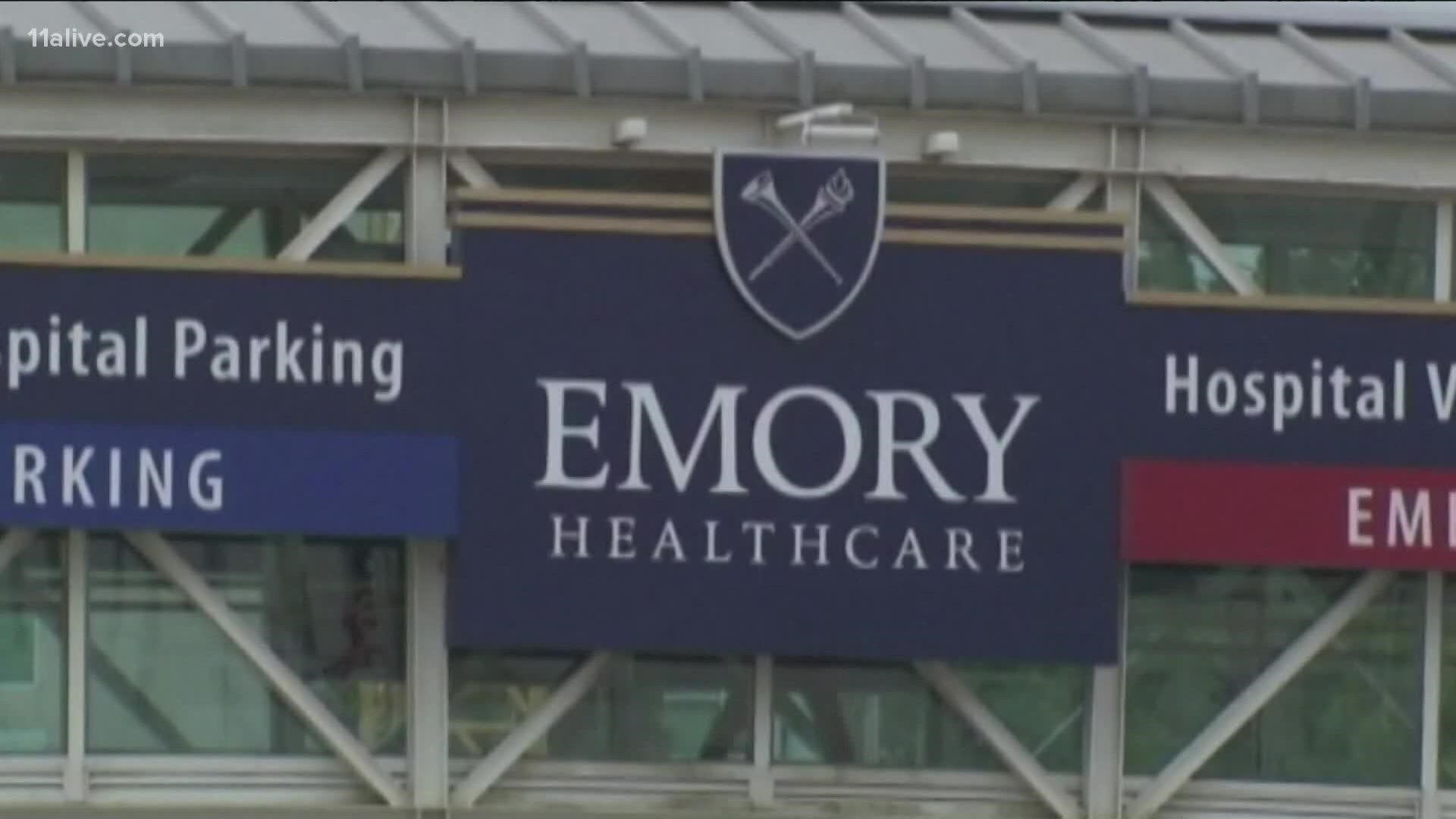ATLANTA — Several Georgia hospital systems gathered Thursday morning at Mercedes-Benz Stadium to address the public on the state of COVID-19 in our communities.
They addressed "an urgent and unified call to action to address the ongoing pandemic."
The joint press conference happened at 10 a.m. You can watch a replay of it on the 11Alive YouTube channel here:
Officials from Children’s Healthcare of Atlanta, Emory Healthcare, Grady Health System, Northeast Georgia Health System, Piedmont Healthcare, and Wellstar Health System provided a current perspective from the front lines of their hospitals and health systems.
That perspective was of worry and exhaustion, as emergency rooms and hospital beds operate at near-full capacity.
Dr. Robert Jansen, the chief medical officer and chief of staff with Grady Health System, stated that they have more patients in the emergency department waiting for care than almost any other time. The tsunami of Delta variant cases, as he put it, has begun to put a strain on an already incredibly busy emergency department, with patients waiting longer than usual for assistance.
"For the first time I can think of, we are having to go on diversion, not because of trauma cases but because our emergency departments are full of patients infected with COVID," Dr. Jansen stated.
However, he pressed that contrary to myth, "diversion" doesn't mean you can't come but is rather the hospital's way of letting ambulances know they're full.
Meanwhile, Sharon Pappas, the chief nurse executive with Emory Healthcare, spoke on the pandemic's toll on nurses and healthcare workers.
"Many nurses and professionals are leaving the industry or pausing their careers due to the stress of the pandemic," she said. Pappas added that the decrease in staff has directly impacted the ability to provide access to care, generating longer wait times in emergency departments and for patients to receive beds.
And, things at hospitals are expected to get worse. Dr. Jansen later spoke on the likelihood of a peak surge in cases not coming until after Labor Day, possibly late September. He added that hospital staff would try their best to find space, but it will be difficult, and patients will likely not be comfortable. "It's going to be hard, but you will be taken care of," he added.
According to Dr. Andy Jaffal, the chief medical officer with Piedmont Atlanta Hospital, the latest surge brought on by the Delta variant is expected to outpace the previous highest peak of COVID-19. He added that some hospitals have already seen higher numbers than during the last major sure, in January of this year.
Officials also spoke on the growing number of younger patients with COVID-19 that they are seeing in hospitals. Dr. Danny Branstetter, the medical director of infection prevention with Wellstar Health System, said that while the virus primarily affected older members of the population early on, things are now changing. According to him, far more young people require hospitalization, suffering devastating lifelong injuries to their lungs, as well as strokes and heart attacks.
He added that the virus is no longer drawing a distinction between demographics; it's drawing one between those who are vaccinated and those who are not.
Multiple officials mentioned that the vast majority of patients hospitalized or in the ICU for coronavirus are unvaccinated.
"I watched a 28-year-old, previously healthy, and unvaccinated patient die from COVID complications," Dr. Jafall said. According to him, 96% of patients hospitalized with COVID-19 at Piedmont Atlanta and 97% in the ICU because of the virus are unvaccinated.
The growing impact of the virus on children was also a topic of concern for officials.
Dr. Jim Fortenberry, the chief medical officer with Children’s Healthcare of Atlanta, said that while a small number of children who test positive for the virus need to be hospitalized, the majority who are have underlying medical issues, that doesn't mean they don't experience illness.
"Many kids can't get the vaccine because of their age, and we all place a role in reducing the spread to them," he added.
Dr. Fortenberry mentioned active vaccine trials have begun for children under the age of 12; however, as students return to the classroom, masks are recommended to help prevent the spread.
All in all, the most pressing point for health officials was for people to get vaccinated if they have not already. Every medical professional who spoke insisted that the vaccines were safe, and there is data to back that up.
And when asked about the possibility of getting infected even after vaccination? Dr. Jansen says vaccinated patients who are infected only make up about 10% of hospital admissions, with most not even being fully vaccinated, having only received one of their two shots.
He added that almost none require critical care and, even if you get infected, the vaccine protects you against serious illness.
Finally, Dr. John Delzell, the vice president of medical education with Northeast Georgia Health System, added that if you've been exposed and have symptoms to quarantine and get tested as soon as possible.
11Alive is focusing our news coverage on the facts and not the fear around the virus. We want to keep you informed about the latest developments while ensuring that we deliver confirmed, factual information. We will track the most important coronavirus elements relating to Georgia on this page.

